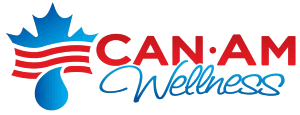November News from IIAQC
For The IAQ Industry

Nov, 2007 Vol.1
Solving Equipment Needs
Most professionals involved in indoor air quality services have invested in a variety of testing equipment that measure the more common indoor air quality contaminants. However, it is not unusual to encounter IAQ problems that require testing equipment not in your arsenal. In addition, some of your equipment may not work consistently well or may use old technology or not have the component needed to give the result you require. It is difficult and expensive to have state-of-the-art equipment or numerous instruments that you may only use once a quarter or even once a year. The answer to this problem may be equipment rental. A reputable rental provider can make sure the latest instruments are available on a consistent basis for you and allows rental on a daily or weekly basis. The rental provider carries the expense of initial purchase, storage, depreciation, ongoing maintenance, annual calibration, and insurance, to name a few costs that are moved from your shoulders to the renter. There are many companies that rent IAQ testing equipment as well as many of the analytical labs involved in IAQ.

New Products – Be Careful
There have been an abundance of new products introduced in the mold field that kill mold and inhibit mold growth. There seems to be lots of competition as to who can provide the longest warranty, or whose product is the easiest to apply. With the flood of new products comes the confusion in comparing them. Be sure to ask good questions and read labels carefully. An important consideration, of course, is making sure the products have proper EPA registration. All this can help narrow dow n the hundreds of available products to those that actually work and have proper documentation and registrations.
Indoor Environmental Illness
Indoor environmental illnesses can be allergic and non-allergic. The allergic ones are allergic rhinitis and asthma and are acerbated by allergens such as dust mite, cockroach, animals, and mold. Irritants such as VOCs may aggravate asthma. Certain irritants and strong smells may aggravate some forms of rhinitis. Non-allergic illnesses such as hypersensitivity pneumonitis results from inhalation of organic dusts, moldy organic debris, animal proteins and certain chemicals.
